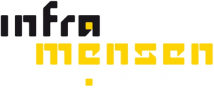Automating Financial Services with Robotics and Cognitive Automation Deloitte US
Robotics & Cognitive Innovation Strategy & Operations
Intelligent automation is undoubtedly the future of work, and companies that forgo adoption will find it difficult to remain competitive in their respective markets. Deloitte refers to one or more of Deloitte Touche Tohmatsu Limited, a UK private company limited by guarantee (“DTTL”), its network of member firms, and their related entities. In the United States, Deloitte refers to one or more of the US member firms of DTTL, their related entities that operate using the “Deloitte” name in the United States and their respective affiliates.
Learn more about the common pitfalls and how to build a successful foundation for scaling.
Robotic and cognitive automation in real estate
To understand how R&CA can benefit the RE industry, consider how many RE companies continue to use spreadsheets for recording, collating and analyzing data for cost aggregation, lease administration, invoices, accounts payables, property valuation and forecasting. Substantial time is often spent reading, manipulating or abstracting paper or digital documents for relevant information. This tends to result in sub-optimal utilization of data and employees given that different departments often work in silos. Robotic process automation refers to software or processes that enable the automation of routine administrative tasks.
Beyond automating existing processes, companies are using bots to implement new processes that would otherwise be impractical. The choice will largely depend on the nature of which process the business wishes to automate. If the function involves significant amounts of structured data based on strict rules, RPA would be the best fit. On the other hand, if the process is highly complex involving unstructured data dependent on human intervention, Cognitive automation would be more suitable.
IBM Consulting accelerates the future of FinOps collaboration with Apptio
Below we will list some typical use cases of cognitive automation and robotic process automation. Comparing robotics to cognitive automation becomes essential when trying to decide which technology to adopt or whether to adopt both if needed. Understanding the nature of the process to be automated and how to make it more efficient so the staff can be relieved of the grunt work. Businesses are increasingly adopting cognitive automation as the next level in process automation.
- This would allow professionals to better analyze data outputs at an enhanced speed, and make more informed decisions, all at a relatively low cost.
- Developers are incorporating cognitive technologies, including machine learning and speech recognition, into robotic process automation—and giving bots new power.
- For more information within the United States, please contact Peter Lowes at For more information within the UK and Europe, please contact John Middlemiss at
- Finally, there needs to be adequate privacy and security protections built into the applications.
- Without sufficient scale, it is difficult for the benefits from R&CA to justify the effort and investment.
Once the robots are implemented, a single operator manages an average of five robots, adding up to the capacity of 25 full-time equivalents. With growing capabilities of cognitive technologies and robots operating robots, this ratio will grow much further. Craig Muraskin, Director, Deloitte LLP, is the managing director of the Deloitte U.S. Innovation group. He counsels Deloitte’s businesses on innovation efforts and is focused on scaling efforts to implement service delivery transformation in Deloitte’s core services through the use of intelligent/workflow automation technologies and techniques. Craig has an extensive track record of assessing complex situations, developing actionable strategies and plans, and leading initiatives that transform organizations and increase shareholder value.
These systems require proper setup of the right data sets, training and consistent monitoring of the performance over time to adjust as needed. These technologies are coming together to understand how people, processes and content interact together and in order to completely reengineer how they work together. Cognitive automation is also starting to enhance operational excellence by complementing RPA bots, conversational AI chatbots, virtual assistants and business intelligence dashboards. “With a team that is free to innovate and contribute improvements to the organization, CIOs can deliver higher employee satisfaction, improve customer retention and achieve incredible time and resource savings that directly impacts their bottom line,” Siddiqui said. This shift of models will improve the adoption of new types of automation across rapidly evolving business functions.
Cover Story: Shaping Automation Trends in 2024 – Bisinfotech
Cover Story: Shaping Automation Trends in 2024.
Posted: Thu, 12 Oct 2023 07:00:00 GMT [source]
They may also have to revisit their talent strategy, as use of R&CA technologies may require them to train employees to do higher-order work that requires more critical thinking and discernment. Eventually, RE companies using R&CA can achieve the two-fold benefit of being able to deploy their people to more meaningful tasks and enhancing their overall productivity. While RPA is a first step, automation is expected to be increasingly driven by cognitive technologies in insurance. Here we explore how insurers can reconfigure operating models and adopt a more customer-centric approach to capitalize on the opportunities unlocked through cognitive technologies and robotic process automation. Bottomline, like any new technology, R&CA comes with the promise to improve routine tasks radically by making them faster, cheaper, and more accurate. However, it would be important for companies to evaluate and implement data access, protection, and privacy measures based on the amount of tenants’ and employees’ personally identifiable information (PII) processed using these technologies.
Robotics and cognitive automation in HR
Read more about https://www.metadialog.com/ here.

Plaats een Reactie
Meepraten?Draag gerust bij!